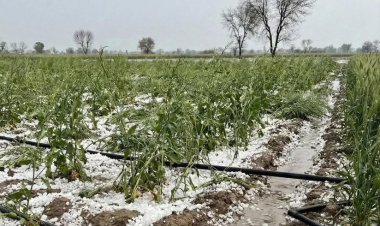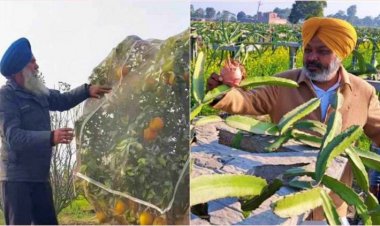Stubble Burning Persists as Farmers Cite Costs, Lack of Alternatives; Bioenergy Potential Remains Untapped: IFGE survey
While farmers acknowledge the environmental and health risks associated with stubble burning, many stated that they have no cost-effective alternative.

Despite growing concerns over pollution and environmental hazards, many Indian farmers continue to engage in stubble burning due to financial and logistical constraints. A survey of farmers revealed that small landholdings, high machinery costs, and a lack of affordable alternatives are the primary reasons for the practice. The survey was conducted by the Indian Federation Of Green Energy (IFGE) recently.
While farmers acknowledge the environmental and health risks associated with stubble burning, many stated that they have no cost-effective alternative. The quick turnaround required between harvest and the next sowing season forces them to burn crop residues, as manual removal or other disposal methods are either expensive or unavailable.
Some farmers mentioned that stubble burning has been a common practice for the past decade, as the window for sowing the next crop is too short. Others cited that biomass collection and storage are costly, with very few buyers apart from brick kilns.
Bioenergy: A Missed Opportunity?
The survey highlighted a mixed response regarding bioenergy as an income source. Some farmers saw potential in selling crop residues for biomass production but stressed that procurement remains unorganised, labor-intensive, and financially unviable due to fluctuating market prices.
Interestingly, while some farmers expressed interest in adopting bioenergy solutions like biogas plants or biomass gasifiers, they pointed out that high setup costs and lack of government support make it impractical. Others remained unaware of how bioenergy could benefit them, indicating the need for better awareness campaigns.
Government Support & Policy Gaps
Although some farmers believe the Indian government is making efforts to promote bioenergy, many respondents admitted that they were unaware of existing government schemes or subsidies.
A common demand among the farmers was long-term price agreements and partnerships with buyers, as unpredictable rates deter them from shifting towards bioenergy. Some also emphasized the need for subsidised machinery and government-backed procurement centers to make biomass supply feasible.
One respondent suggested that if per-acre incentives were provided, more farmers would adopt non-burning alternatives. Another highlighted that promoting bio-composting as an alternative to burning could help change traditional farming practices.
Conclusion: A Call for Policy Reforms
The survey results indicate that while awareness of bioenergy is growing, financial and logistical barriers prevent large-scale adoption. Farmers are open to selling crop residues instead of burning them, provided there is assured profitability, better infrastructure, and government-backed incentives.



 Join the RuralVoice whatsapp group
Join the RuralVoice whatsapp group






































